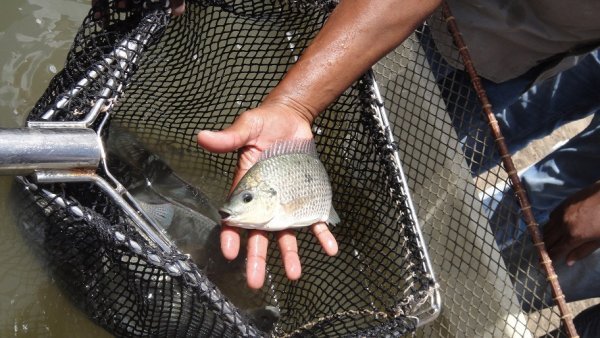Aquaculture and Climate Change [NDF C72]

The primary objective of the project is to develop and pilot an integrated aquaculture model for building social, economic and ecosystem resilience to climate change in selected Mozambican coastal communities involving the private sector. The aim is to replicate it nationally and in the region and involving the private sector.
REGION
Mozambique
PROJECT REFERENCE
NDF C72
DURATION
2016 to 2021
NDF FINANCING
EUR 5 million
FINANCING TYPE
Grant
IMPLEMENTING AGENCY
World Bank
NDF CONTACT
info@ndf.int
OBJECTIVE
The overall vision is to provide the Mozambican government with an approach that is built on them three pillars comprising the country’s "Green Economy Roadmap". This roadmap consists of i) sustainable infrastructure (mangroves and aquaculture), ii) sustainable and efficient use of natural capital, and iii) building adaptive capacity and resilient livelihoods.
OUTCOMES
The project will pilot an integrated aquaculture model that can be replicated elsewhere in the region. The expected results include 1) replicable tools for social and economic resilience to climate change, 2) replicable tools for environmental resilience to climate change, 3) enhanced coordinated institutional arrangements for climate change adaptation and mitigation, and 4) a monitoring system for measuring the effectiveness of the interventions and sharing best practices and lessons learned from the pilot.
NDF’ s involvement has strengthened the focus on sustainability, environment, gender and social aspects. This includes the introduction of an ecosystem-based and adaptive, lesson-learning approach for participants and future projects. The aim is ensure that not only will income earnings increase for increased social resilience, but women will be involved in multiple aspects. The increased mangrove cover and associated biodiversity will increase ecological resilience and aims to create opportunities for alternative incomes. Additionally NDF’s input will assist National Institute for Aquaculture Development (INAQUA) to implement its National Aquaculture Strategy by developing coordination at the provincial level. Environmental management will he better coordinated across sectors and institutions.
FINANCING
The total project cost is estimated at EUR 8.33 million of which NDF EUR 5.0 million and World Bank will provide EUR 3.33 million. Additional funding is expected from the Japanese Social Development Fund, The French Development Agency, the Global Environment Facility, and the Government of Mozambique.
Project completed in December 2017. Actual disbursed amount EUR 524,409.29.
NDF CONTACT
info@ndf.int
